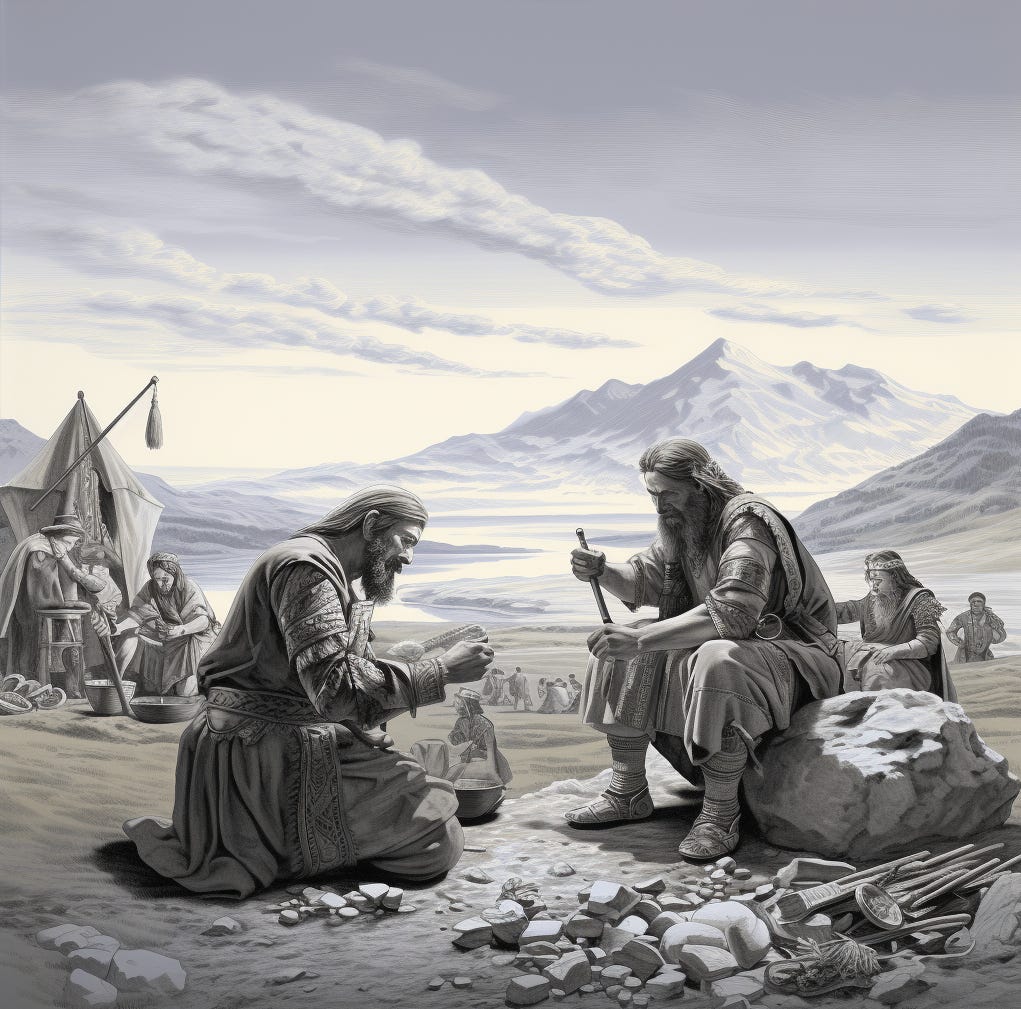Surviving Proscription: The Clan Gregor Story
Proscription, historically, signifies the legal outlawing or banning of a group, which in the context of Scottish clans like the Clan Gregor, meant the obliteration of their very identity. This draconian measure sought not just to punish but to erase—banning the clan's name, tartan, and rights, effectively attempting to wipe them from history. The Clan Gregor’s ordeal under the proscription of King James VI is a poignant saga of survival against systemic annihilation.
Unyielding Spirit Amidst Adversity
The tale of Clan Gregor's fall from grace is complex, woven through with political machinations, strategic alliances, and betrayals. Their downfall was not due to loss in battle or dwindling numbers but a sequence of political maneuvers and the ambitions of rival clans, particularly the Campbells. The proscription of their name was not merely a legal formality but a crushing blow intended to disband and disperse the clan forever.
However, the essence of the Clan Gregor story is their indomitable resilience. Despite the proscription's harshness, they found ingenious ways to persevere. Many clan members adopted new surnames to blend into the broader Scottish populace, becoming Grants, Campbells, and others, thereby evading the crown’s oppressive gaze. They scattered across Scotland, from the bustling Lowlands to the secluded Highlands, subtly preserving their customs and heritage against all odds.
Creative Survival Strategies
The Gregors' resilience manifested in various creative survival strategies. One notable example is the tale of a small band of Gregors who took to the sea, becoming merchants and sailors. Their maritime ventures not only provided a livelihood but also a means to maintain connections between dispersed clan members, facilitating communication and mutual aid across the shores of Scotland.
Another instance of the Gregor spirit was their adaptation to the hostile environment through cattle raiding, which became a symbol of their resistance. These raids were not mere acts of rebellion but essential for reclaiming wealth and sustenance from lands that were once theirs. The raids were meticulously planned and executed with precision, showcasing the Gregors' deep knowledge of the land and their unbroken spirit.
Solidarity in Secrecy
Despite the scattering, the Clan Gregor maintained a robust network of kinship and loyalty. This network was instrumental in harboring fugitives from the clan, providing safe havens across the country. Secret gatherings were held in hidden valleys and caves, where clan members shared news, planned for their collective welfare, and celebrated their heritage with stories, music, and dance, keeping the flame of their identity alive.
One poignant story tells of the Gregor's secret support to their proscribed kin during harsh winters. They developed a system of signals and signs to communicate, share resources, and evade capture. These acts of solidarity were not without risk, but they exemplified the clan's unwavering commitment to each other's survival.
The Legacy of Resilience
The Clan Gregor's struggle against proscription and their efforts to preserve their identity amidst persecution is a testament to the human spirit's resilience. Their story is a vivid chapter in Scottish history, illustrating the harsh realities of clan politics and the enduring bonds of kinship and identity. The legacy of the Clan Gregor serves as a reminder of the strength found in unity and the power of indomitable will against the forces of erasure and oppression.
The saga of the Clan Gregor, from their strategic adaptations to their secret celebrations of heritage, underscores the profound connection between identity and survival. Despite the crown's efforts to erase them from memory, the Clan Gregor's spirit remains a beacon of resilience, a reminder that even in the face of overwhelming odds, the human spirit can endure and flourish.





